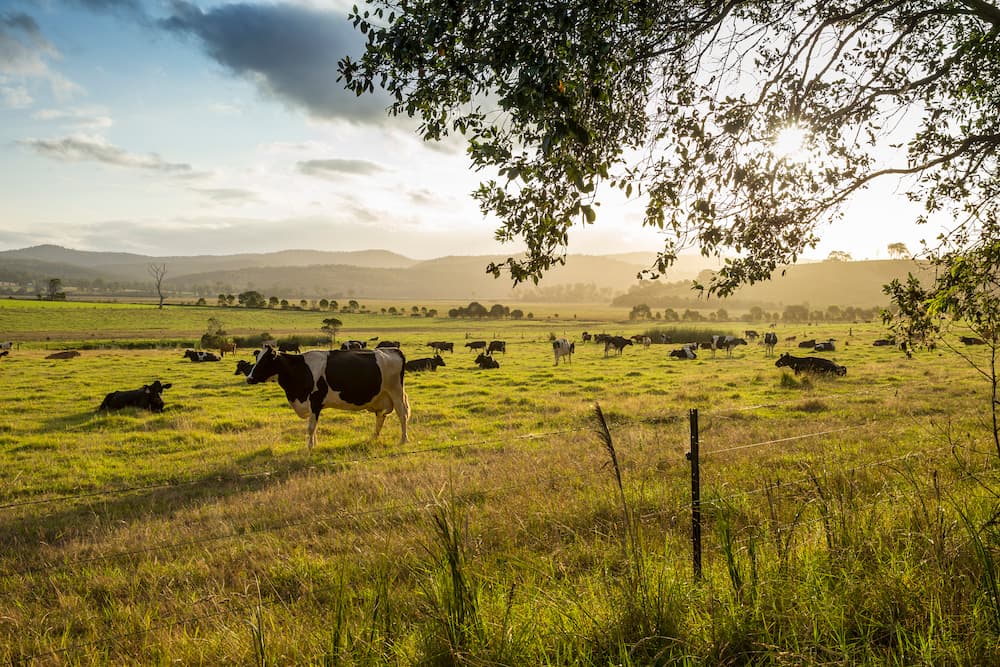
Advancing Farmer Livelihoods and Thriving Farm Communities in the U.S. Through Agricultural Conservation Practices
Livestock farmers play a leading role in feeding a growing world and supporting rural economies. However, today’s global challenges put increasing pressure on producers. To help livestock farmers and support sustainable food systems amidst growing climate change concerns, the adoption of environmental and conservation practices is paramount.
The Zoetis Foundation is committed to helping advance farmer livelihoods. The Foundation is proud to help support conservation and restoration efforts through grant funding to the National Fish and Wildlife Foundation (NFWF) that benefits both aquatic and terrestrial wildlife and helps dairy farmers build more sustainable businesses across New England, Long Island Sound, and the Chesapeake Bay Watershed.
By promoting access to agricultural conservation practices and technologies, the Zoetis Foundation is helping dairy farmers improve productivity and profitability, while prioritizing sustainability and supporting thriving farm communities. Specifically, the Foundation’s support will help fund the following conservation efforts:
2023 Grants
- Long Island Sound
NFWF announced grants that will equip dairy farmers with tools, resources and infrastructure to implement sustainable farming practices and improve water quality in the Long Island Sound, an invaluable wildlife habitat that also provides economic and recreational benefits to millions of people. The grants, awarded through the Long Island Sound Futures Fund, will support projects that will prevent 2.7 million gallons of stormwater and 101,000 pounds of nitrogen pollution from flowing into Long Island Sound waters. The projects will also remove 120 tons of marine debris from the sound and support the restoration of 880 acres of coastal habitat and 102 miles of river corridor – environments that are vital to fish and wildlife. Additionally, the initiatives will reach 30,000 people, including dairy farmers, through environmental education programs to increase awareness of how to improve the health and vitality of the Sound.
2022 Grants
-
- New England
NFWF announced grants that will give dairy farmers the tools to improve habitat conservation on agricultural lands. While helping dairy farmers increase their sustainability practices, farmers also will help improve habitat in local rivers and streams throughout the Vermont portion of the Lake Champlain Basin that support diverse fish and wildlife populations. The grants, awarded through the New England Forests and Rivers Fund, will support a range of projects that strengthen the health of forest and aquatic systems. Collectively, the grants will engage more than 200 private landowners, restore 200 acres of streamside forest, and improve management on more than 29,000 acres of forest land. - Long Island Sound
NFWF announced grants that will support local dairy farmers and improve local waterways and the Long Island Sound. Projects will help bring dairy farmers near the Long Island Sound and other members of the agricultural community together to create a more resilient local food system, where consumers have more access to locally produced agricultural products. In addition, grants will support a wide range of other conservation, reaching 319,000 people through environmental education programs, and preventing 5.3 million gallons of polluted stormwater from flowing into Long Island Sound. The projects will also remove 8,000 pounds of marine debris from the sound shorelines and enhance 215 acres of habitat vital for fish and wildlife. - Chesapeake Bay Watershed
NFWF announced grants that will give dairy farmers the tools they need to strengthen the sustainability of their businesses while supporting the restoration and conservation of the Chesapeake Bay watershed. Specifically, the partnership will provide agricultural conservation practices to help dairy farms manage agricultural runoff, improve water quality and wildlife habitat, and address climate change. These agriculture grants are part of the Chesapeake Bay Small Watershed Grants that collectively fund innovative and community-led approaches to reduce pollution to local rivers and streams, restore habitats, and improve rural and urban communities across the Chesapeake Bay watershed. These projects will further emphasize partnerships and collaborative approaches as central to effective local and regional ecosystem restoration efforts and engagement of local communities in the planning, design, and implementation of restoration and conservation efforts.